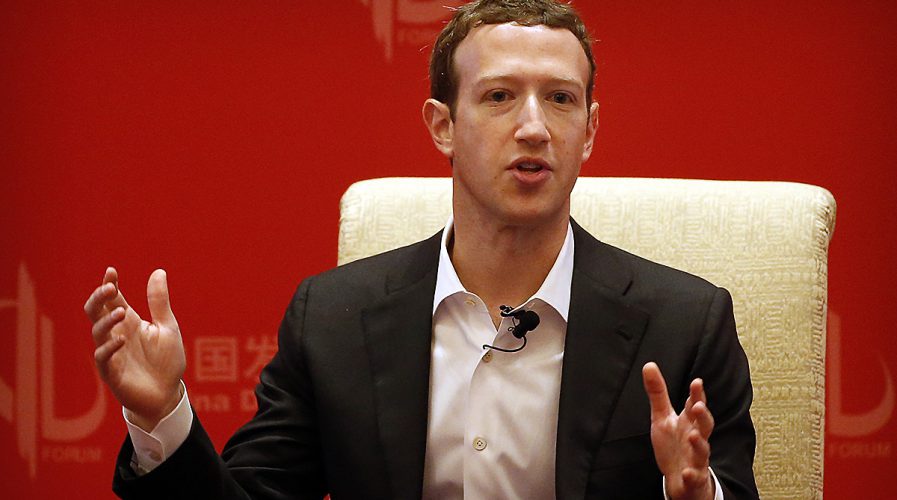
Facebook CEO Mark Zuckerberg speaks during a panel discussion held as part of the China Development Forum. Pic: AP.
Facebook changes its News Feed algorithm, publishers everywhere freak out
IF you think you heard the sound of a collective groan yesterday, it probably came from publishers everywhere wincing at Facebook’s latest announcement. The social media platform is changing its News Feed to prioritize posts from “friends and family” rather than those from news sites, brands, services, and the like.
In a statement yesterday, Facebook revealed their News Feed values, titled ‘Building a Better News Feed for You‘. “Our top priority is keeping you connected to the people, places and things you want to be connected to – starting with the people you are friends with on Facebook,” it said.
The biggest change is that users will see posts from their friends moved further up their news feed, and posts from everything else pushed down. This is good for people who don’t like the media – bad for the media itself.
Facebook is an extremely good source of traffic for most media organizations, in turn making it a lucrative source for revenue for Facebook itself.
This means that advertising on Facebook will likely become more expensive since it has to make space for its users’ own posts. According to The Content Strategist, more publishers will buy up advertising space on the platform in an effort to combat the inevitable decline in traffic, therefore raising supply-side costs.
SEE ALSO: Facebook to press on with Internet access initiative despite setback
Facebook’s engineering director, Lars Backstrom, said the changes would definitely affect Pages. He wrote: “We anticipate that this update may cause reach and referral traffic to decline for some Pages. The specific impact on your Page’s distribution and other metrics may vary depending on the composition of your audience.
“We encourage Pages to post things that their audience are likely to share with their friends,” he added.
According to Inc.com, publishers could get around this by making more “rich media”, which refers to posts that include photos, videos, embeds, 360-degree photos or videos, and Facebook Live broadcasts.
There have also been concerns about the “echo chamber” that is Facebook growing even louder, as users will only see content from like-minded friends and family.
Great for Facebook, terrible for the real world. There are already far too many "echo chamber geniuses" out on Twitter & Facebook.
— Nigel Tolley (@discreetsecure) June 30, 2016
Even for someone who don’t really like the media, it can’t be denied that exposure to the news shapes the way we think. With this exposure becoming severely limited on Facebook – where the average American consumer spends 40 minutes scrolling through per day – there is a a real fear that people will become more narrow-minded rather than more informed.
Without publishers and news organizations to break the echo chamber every once in a while, users are more likely to seek out views that they agree with, rather than ones that contradict their opinions.
A study published by the journal Proceedings of the National Academy of Sciences found that users “tend to aggregate in communities of interest, which causes reinforcement and fosters of confirmation bias, segregation, and polarization.
“This comes at the expense of the quality of information and leads to proliferation of biased narratives fomented by unsubstantiated rumors, mistrust, and paranoia.”
READ MORE
- The criticality of endpoint management in cybersecurity and operations
- Ethical AI: The renewed importance of safeguarding data and customer privacy in Generative AI applications
- How Japan balances AI-driven opportunities with cybersecurity needs
- Deploying SASE: Benchmarking your approach
- Insurance everywhere all at once: the digital transformation of the APAC insurance industry
